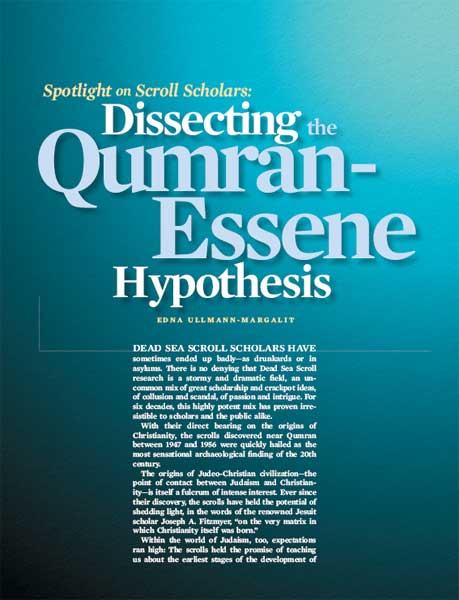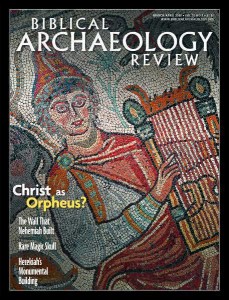Another View: Do Josephus’s Writings Support the “Essene Hypothesis”?

In a recent issue of BAR, Steve Mason challenges the traditional “Essene hypothesis”—the belief that the Dead Sea scrolls and the archaeological site of Qumran are connected with the Essenes—based on the writings of Josephus. Accusing Scroll scholars of being “less sensitive to the nuances of Josephus’s historical narratives,” he argues that the authors of the Dead Sea Scrolls remain a mystery. In this brief response, we will explain why, with the exception of the scrolls themselves, Josephus remains our best evidence in support of the “Essene hypothesis.”
Both of Josephus’s two great works, The Antiquities of the Jews and The Jewish War, as well as his autobiographical Life, reveal his fascination with the Essenes. Mason’s article gives the impression that Josephus merely uses the Essenes to illustrate the manliness of the Judeans. In Josephus’s famous description of the major forms of Judaism in his Jewish War (2.119–161), he devotes 43 paragraphs out of 47 to the Essenes, leaving only two to the majority Pharisees and one to the Sadducees. Why this interest in the Essenes when the Pharisees—a sect also known for its punctilious, or manly, lifestyle—would have sufficed? Josephus chose the Essenes because his audience was interested in them, and because he was once an Essene. He writes in his autobiography:
Already a library member? Log in here.
Institution user? Log in with your IP address.

